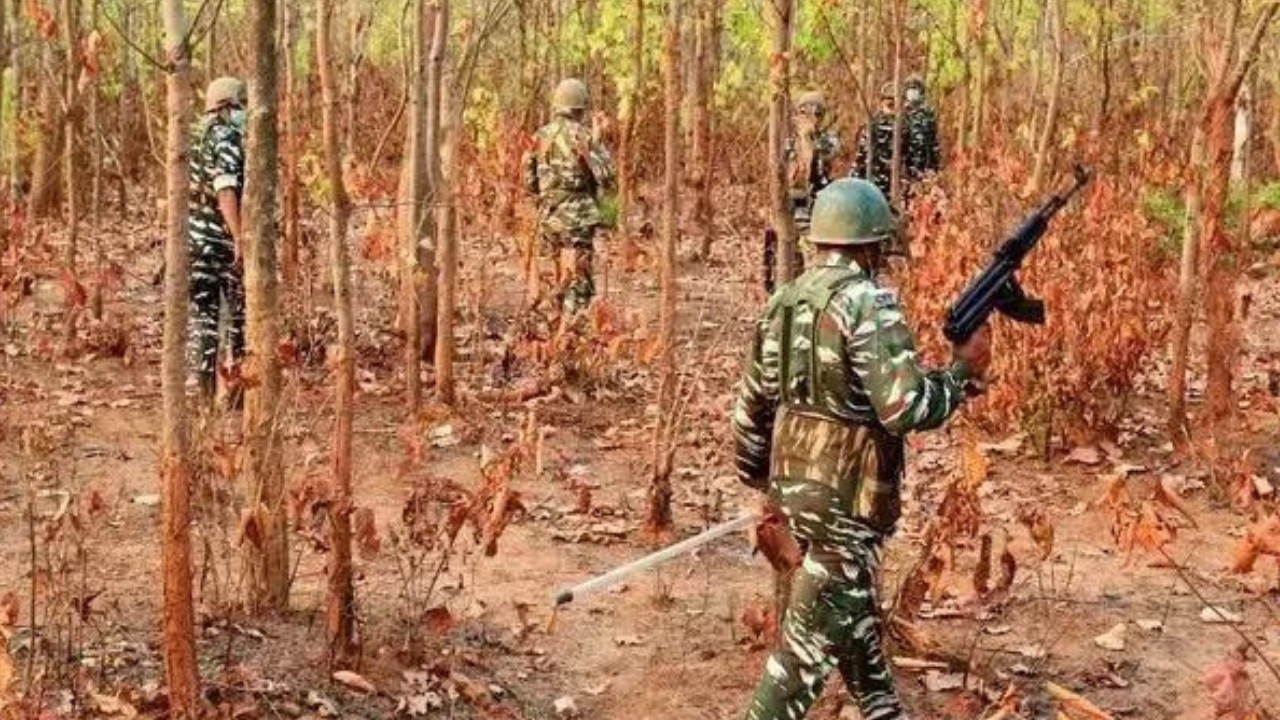Naxal Crackdown: A Major Victory in the Fight Against Maoist Insurgency
India has recently witnessed a significant victory in its long-standing battle against Naxalism. In a series of intense encounters, security forces have inflicted heavy losses on Maoist groups, leaving many wondering if this is the beginning of the end of this protracted conflict. Prepare to be amazed by the sheer scale of these recent operations and the impact they may have on the future of India's fight against insurgency.
The Bokaro Encounter: A Turning Point?
The recent encounter in Bokaro, Jharkhand, resulted in the death of at least two Naxals and the recovery of several high-powered weapons, including AK-47s and INSAS rifles. While significant, this operation is just one piece of a much larger puzzle. What is truly striking is that this success closely followed another major operation in Chhattisgarh.
Unprecedented Success in Chhattisgarh
Just a day before the Bokaro operation, sixteen Maoists were killed in an encounter in Chhattisgarh's Gariaband. This included the killing of Jai Ram alias Chalpathy, a Central Committee (CC) member of the banned Maoist organization. The elimination of a CC member is especially noteworthy; such high-ranking members typically die of natural causes or are rarely apprehended.
This exceptional success highlights the improved coordination and tactical prowess of Indian security forces. This is a game changer for those hoping for a future without the insurgency and terrorism.
The Significance of These Encounters
These back-to-back encounters underscore a critical turning point in the fight against Naxalism. The elimination of key leaders and the seizure of weapons are substantial blows to the Maoist organization's capacity to operate effectively. The significant number of deaths indicates a major loss of fighting capacity. For years they have plagued India, but is this their last stand?
A Joint Effort Towards a Maoist-Free India
The successful operations involved collaborative efforts between the Central Reserve Police Force (CRPF), the Special Operation Group (SoG) of Odisha and Chhattisgarh police. This successful collaboration highlights the growing synergy between various security agencies, maximizing operational efficiency. These combined forces represent a new hope in the fight against Naxalism.
Impact on Public Morale and National Security
Beyond the operational successes, these encounters are of significant importance to national security and have served to greatly boost public morale. The fact that security forces have been successful in tackling Naxalism will undoubtedly raise spirits across India.
Amit Shah's Response: A New Era Dawning?
Union Home Minister Amit Shah's statement following the Chhattisgarh encounter indicates the significance of this achievement within the context of the larger national strategy. By declaring that Naxalism is 'breathing its last', Shah acknowledges not just the tactical success, but its implication in the wider context of building a Maoist-free India. He stated "Another mighty blow to Naxalism. Our security forces achieved major success towards building a Maoist-free Bharat." This has provided another huge reason for national optimism. Is this actually the final push in eliminating the threat completely?
Long-Term Implications
The sustained offensive against Naxalites might create a domino effect, potentially weakening the organization significantly. We must not take our eye off the threat just yet however. While hope is rekindled, continuous vigilance and a well-defined strategy are needed to ensure sustainable success.
Take Away Points
- The recent encounters in Bokaro and Gariaband represent a significant turning point in India's fight against Naxalism.
- The collaborative efforts between various security agencies were vital to success.
- The elimination of a key Maoist leader, Jai Ram alias Chalpathy, significantly weakens the organization.
- The future will depend on maintaining consistent pressure to fully secure the victory and fully remove Naxal activities.




